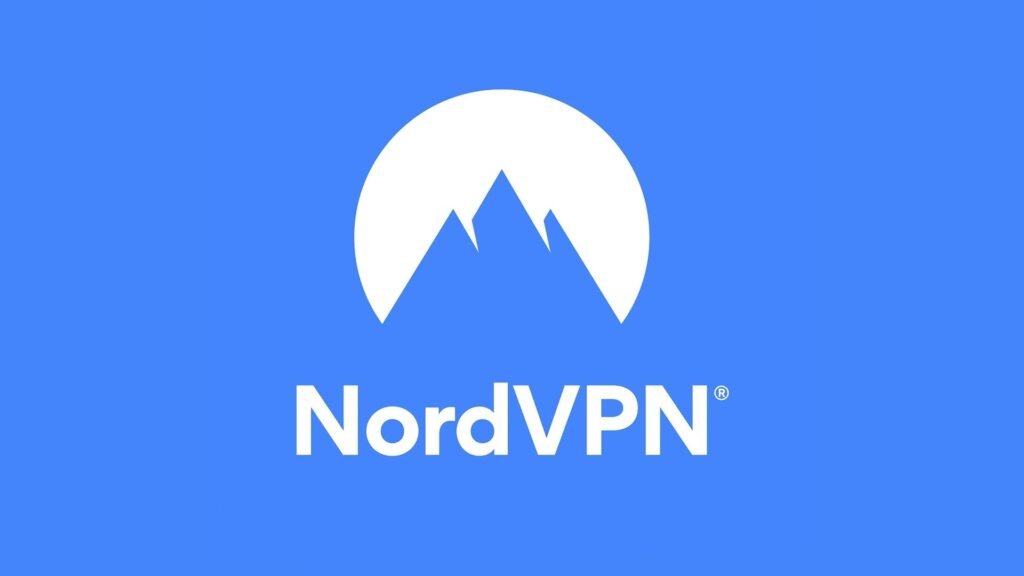Did you know that artificial intelligence (AI) could add over USD 15 trillion to the global economy by 2030? This huge figure shows how AI can change many areas, especially in marketing. Businesses are seeing the good side of AI, like better customer service and smoother operations. AI is making marketing better, with results that were once impossible.
McKinsey says marketing will feel AI's biggest financial impact1. But, only a few top marketing officers are using AI. Those who do are using it for better ads, automated content, and predictions, like Facebook and Google1. AI tools like Phrasee and Seventh Sense are making email marketing better. They help fight spam and make your brand stand out1
As AI gets easier to use, it's key to have a team that understands it1. Using AI can make your team work faster and offer more personal experiences. It's clear: AI is changing marketing for the better.
Key Takeaways
- • AI is projected to contribute significantly to the global economy by 2030.
- • Only a small fraction of chief marketing officers currently utilize AI in their strategies.
- • AI tools are essential for optimizing email marketing amid high volumes of spam.
- • A substantial percentage of marketers recognize the efficiency gains provided by AI.
- • Developing a culture of AI literacy equips businesses to better leverage these technologies.
- • AI is transforming the landscape of content creation in marketing.
Understanding the Impact of AI on Marketing Strategies
The role of AI in marketing is becoming more clear. In 2023, AI use among the public grew nearly ten times. This shows people are getting more familiar with AI's abilities2.
About 87% of marketers have tried or used AI tools. Also, 68% use these technologies every day in their work2. The marketing world has changed a lot, with 63% of leaders investing in AI or planning to soon2.
AI helps brands understand how well past campaigns did. It gives them important data to make better decisions. For example, AI can boost marketing ROI by up to 30%3.
Many companies can now change their strategies quickly. This leads to better customer engagement. In fact, 80% of people like brands that offer personalized experiences3.
Marketers are seeing the benefits of AI, with 82% expecting more good things from it2. But, not all companies are fully embracing AI. Only about half of leaders use AI for making content, showing a big opportunity for growth2.
This big change in marketing offers a great chance for junior and mid-level marketers. As AI skills become more important, 77% think marketing internships have changed a lot2. Using AI helps brands stay ahead and meet what customers want and need.
| Statistic | Value | Source |
|---|---|---|
| AI Use Increase | Nearly 10x | 2 |
| Marketers Utilizing AI | 87% | 2 |
| Increase in Marketing ROI | Up to 30% | 3 |
| Consumer Preference for Personalization | 80% | 3 |
| Expectation of Productivity Improvements | 82% | 2 |
| Marketing Leaders Investing in AI | 63% | 2 |
The Role of Machine Learning Algorithms in Marketing
Machine learning algorithms boost your marketing by making audience targeting better. They look at lots of data to find what customers like and do. This lets you send messages that really speak to them.
AI tools can also make your marketing work smarter, not harder. They help with things like making content better and looking at data. This means you can do more with less effort4. Plus, these tools get better over time, so you don't have to keep spending on new tech5.
Big names like Google and Facebook use these algorithms to place ads better. This makes your marketing more effective4. They also help you understand what customers really think and feel, even when they use slang or switch languages5. This helps you guess what customers want and make them happier.
Harnessing Predictive Analytics for Improved Campaigns
Predictive analytics has changed marketing by using data to predict future trends. This helps marketers create better campaigns, leading to higher success rates and better use of resources6. For example, using AI for analysis can help businesses make smart decisions during busy times, making marketing more effective7.
One big plus of predictive analytics is it can guess what customers will do next. This lets marketers plan their strategies better. By looking at past data, companies can figure out the best times to send emails, getting more people to engage6. Tools like Adobe Analytics and Oracle Analytics Cloud help make these decisions easier6.
AI tools also make creating content faster and better, saving time for marketing teams. They use machine learning to understand what people like, making sure campaigns hit the mark6.
Companies like Netflix and Amazon use predictive analytics to make content better for users. This makes customers happier and helps marketing stay in line with what people want7.
To use predictive analytics well, you need to look at what you're doing now and be ready to change. It's important to have the right tools and training for your team. This helps overcome challenges and makes campaigns better7.
| Aspect | Traditional Marketing Methods | Predictive Analytics Enhanced Methods |
|---|---|---|
| Data Usage | Limited historical data analysis | Extensive data-driven insights and trends analysis |
| Campaign Timing | Trial and error for timing | Forecasting optimal send times based on previous data |
| Customer Engagement | Generic messaging | Personalized campaigns tailored to individual preferences |
| Optimization | Post-campaign adjustments | Real-time adjustments based on ongoing analysis |
Enhancing Customer Engagement Through Chatbots and Virtual Assistants
Chatbots and virtual assistants are changing how we interact with customers. They work all the time, giving help whenever it's needed. This makes the experience smooth and boosts happiness8. They can handle lots of questions at once, which is key when things get busy9.
Meeting customer needs is more important than ever. Chatbots use smart tech to give personalized advice and content. They learn what each customer likes, making experiences unique8. In fact, 80% of users love the personal touch they get from these AI helpers9.
Chatbots also make work easier for humans. They answer simple questions and do routine tasks. This lets people focus on harder problems9. This means faster and more accurate help, making customers happier9.
To see how chatbots help with customer engagement, look at this table:
| Benefit | Description |
|---|---|
| 24/7 Availability | Ensures customers can receive support at any time, day or night. |
| Scalability | Handles multiple inquiries simultaneously, ideal for high-demand situations. |
| Personalization | Delivers tailored recommendations based on customer data. |
| Cost Savings | Can save up to 30% in customer service costs through automation. |
| Customer Insights | Captures valuable data that helps brands optimize their offerings. |
Adding chatbots to your customer service plan keeps your business ahead. These tools don't just help customers; they build loyalty. This leads to lasting success for your business.

Artificial Intelligence in Marketing: Personalized Recommendations
Personalization is key in today's marketing world, thanks to AI. Businesses use lots of data to give customers just what they want. For example, AI looks at what customers like and do, giving real-time insights for better marketing.
More than 60% of people expect brands to know them personally. This shows how important personal touches are in how we shop10. In fact, 45% of us might choose another brand if we don't feel seen by the one we're with10.
Improving Customer Experience with Tailored Content
AI helps make content just for you. It makes emails and messages that really speak to you. This makes customers happier and more likely to buy, with 95% of marketers saying AI helps a lot11.
Big names like Amazon and Spotify use AI to suggest things you might like. This makes users more engaged and boosts sales12. Being able to make lots of personalized content is a big win for marketers who want to make every customer's journey special.
Data-Driven Insights into Consumer Behavior
AI can dig through lots of data to understand what we like and do. It looks at what we browse, buy, and share online. This helps marketers make better choices for their ads.
For instance, 27% of us might leave a brand if it doesn't get us. This shows how crucial it is to know your audience10. AI helps predict what we might buy next, making marketing more effective. This means ads are more likely to hit the mark, keeping customers coming back12.
| Metric | Value |
|---|---|
| Consumers Expecting Personalization | 63% |
| Less Likely to Purchase after Non-Personalized Experience | 45% |
| Would Stop Using Brand after Non-Personalized Experience | 27% |
| Marketers Finding AI Effective for Email Creation | 95% |
Using Natural Language Processing for Insightful Analysis
Natural language processing (NLP) is changing how we understand customer insights. It analyzes unstructured data from customer talks, giving us deeper insights into what they feel and say. Brands use NLP to listen to social media, understand what people think, and improve how they connect with customers13.
With 96% of business leaders saying AI and ML tools help a lot, using NLP is key13.
NLP uses methods like semantic search and sentiment analysis to find useful information. These tools help shape marketing plans and make customers happier. For example, NER sorts out names, brands, and places in text, helping in gathering and analyzing data13.
Topic clustering by NLP groups similar terms, helping marketers see things clearly and plan better13. AI can also make ads more personal by knowing what people like and how they live14. This way, you can reach out to people who might buy again or are likely to leave, making your campaigns better.

By using NLP, you get a powerful tool for understanding what customers say and feel. This leads to smarter choices that match what people want right now.
Voice Search Optimization: Changing the Marketing Landscape
Voice search optimization is changing how we market. In the U.S., 46% of adults use voice search every day. Also, 72% of users have voice-activated speakers in their daily routines. This means businesses need to update their SEO strategies quickly15.
By 2022, voice commerce sales in the U.S. could hit $40 billion. This shows how important it is for brands to use voice search in their marketing15.
Tools with new tech analyze voice search patterns. They help marketers make content more visible. About 71% of users like voice search for quick answers. This shows a big change in how people search15.
Using long-tail keywords and schema markup can help. These methods make content show up better in search results16.
AI can make your strategies better. It gives you data to improve how you talk to customers. Adding voice search to your digital marketing plan meets tech-savvy consumers' needs. It also opens up new chances17.
| Statistic | Details |
|---|---|
| Usage of Voice Search | 46% of adults in the U.S. use voice search daily15. |
| Voice Commerce | Sales from voice search expected to reach $40 billion16. |
| Consumer Preference | 65% of users aged 25-49 utilize voice search at least once a day15. |
| Voice-Activated Speaker Adoption | 72% of speaker owners use them in daily routines15. |
| Importance of Long-Tail Keywords | Key for voice search optimization to align with natural speech16. |
Automated Content Generation: A Timesaver for Marketers
In today's fast-paced marketing world, automated content generation is changing how marketers do content marketing. AI tools can make different types of content, like blog posts and social media updates, much quicker than old methods. The AI market is expected to grow by 37.3% each year from 2023 to 2030, showing AI's growing role18. Many marketers are now using these tools to make their work easier.
Studies from Salesforce say generative AI can save marketers over 5 hours a week. That's more than a month saved each year18. This extra time lets you focus on strategy and connecting with customers, boosting your business. Also, by 2025, 30% of marketing content will be made by AI, making content creation more efficient19.
AI tools can also make content more personal, leading to a 221% increase in customer interactions19. When customers get content tailored to them, 46% are more likely to buy, as research shows.
Leveraging Sentiment Analysis for Better Understanding of Consumers
Sentiment analysis is key in making marketing strategies work. It uses AI to check how people feel about brands or products. This gives consumer insights that help companies know what people think and act on it.
In places like the Arabian Gulf, special tools were made to understand Arabic feelings on social media20. This made it easier and more accurate to get feedback on products and services20.
By using sentiment analysis, companies can find out what customers don't like and how to fix it. For example, changing the stc tv interface based on what people said made users happier and more engaged20. AI lets companies keep an eye on how customers feel everywhere, helping them stay in line with what customers want21.
This way, companies can quickly change their marketing to better meet customer needs21.
Old ways of doing sentiment analysis have limits because they rely on simple rules. But AI can handle the complexity of human language better, giving fast and accurate insights22. This helps companies make better decisions and tailor their marketing to improve customer experiences22.
Consumer Behavior Modeling: Predicting Market Trends
Consumer behavior modeling changes how we see the market. It uses AI applications to make better predictions. In 2021, the AI market in retail was about 4.84 billion U.S. dollars. It's expected to hit 31.18 billion U.S. dollars by 202823.
Creating these models needs a lot of data. This includes info on who customers are, what they do online, and what they buy. It also includes reviews and ratings, plus data from outside sources23. Making sense of all this data is key to good predictions. Tools like logistic and linear regression help predict how much a customer is worth23.
More companies are using deep learning to guess what customers will do next. For example, MIT found that these systems can guess human behavior 43% of the time. That's better than older methods that only got it right 36% of the time24. Netflix uses AI to suggest content for about 80% of what its viewers watch. This saves them about $1 billion a year in keeping customers24.
Using these tools can help you stay on top of market trends. Companies that use them can see big gains in profits and efficiency. As more companies use AI, we can expect even better predictions and more customer engagement.

Conclusion
Artificial intelligence is changing how businesses talk to their customers. It brings many benefits, like making things more efficient and giving better insights into what customers want. AI is not just a trend; it's key for the future of marketing.
Using AI can really help businesses grow. For example, it can make marketing up to 73% more effective25. This is because AI helps create detailed plans that really speak to customers.
AI also helps predict what customers might want next. This can lead to big wins for companies, with some seeing a 2.8 times increase in revenue25. Plus, making marketing more personal can really pay off, with 87% of marketers seeing big improvements2526.
By using AI, businesses can stay ahead of the game. They can keep their marketing fresh and meet changing customer needs. This is crucial for growth and standing out online.
AI is a game-changer for businesses. It helps them understand and meet customer needs better than ever before. With 89% of businesses aiming to stand out through customer experience25, it's time to jump on the AI bandwagon.




